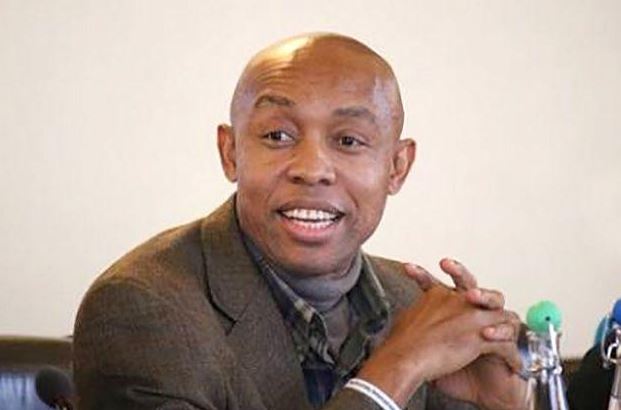
Human Rights, freedom, Peace, Safety, Justice, good governance, unity, progress, peace and development are synonymous with a developed society. How much of these are found in our clime? Does the mere fact that we talk about unity mean we are not united as a country. How can Nigerians advance unity among the values that underpin our coexistence? How have we casualized the Nigerian courts?
In this conversation with Alu Azege, Prof. Chidi Anselm Odinkalu, speaks on all these and further emphasizes the three notional monopolies a safe and secure state must be built on. He currently heads the Anambra state Government’s Truth, Justice and Peace committee with the aim to restore peace and tranquility in the state and possibly the entire Southeast region.
Read on to find out what these are and of course, his unpopular view of a ‘constitutional settlement ‘.
As a human rights advocate, what are your present expectations and hopes regarding the unity of Nigeria, looking at where we are at, now?
Thank you ever so much, my sister, for this engagement in this month of love. I begin from the premise that there is no unity anywhere for the sake of it. There are no united countries anywhere as such. We are all diverse; and Nigeria is even more uniquely so and that is not a crime or a bad thing. Resources are limited and we are all in competition for them. There is no need to fret over that either. The fact that we are always talking about “unity” is all the evidence you need to know we are not united. But, to be fair, Nigeria is not more divided in many ways than most other places. Boston Massachusetts and Savannah, Georgia could be two different countries. In that competition, people deploy everything they have for advantage, including identities and more. So, every society is actually more divided than united. The only thing that we can unite about are the values, rules and institutions that underlie our coexistence.
How exactly do you define a safe and secure society, and what needs to be done to achieve it in Nigeria?
I am glad that you speak about safety and security and not just security. Lots of people talk about “security” and forget the safety part of it. Safety is a feeling; security is a condition. Safety begins with belonging and with institutions and processes and norms to guarantee that. You are not safe if there is no sense of community or of belonging. So, when politicians take machetes to the sense of coexistence among people, they damage safety. When you do that, you license insecurity. It is the same thing when you damage institutions that are supposed to guarantee belonging or ensure accountable norms, such as law enforcement, the judiciary, legitimate institutions, etc. So, the answer to your question about what needs to be done to achieve a safe and secure society in Nigeria easily reveals itself: when you act to advance coexistence, and institutional integrity and legitimacy of the state or of government, you advance safety and security. In Nigeria we like to think that deploying troops and armed assets is how to do it. Those don’t advance safety and security. In Nigeria, they can breed intractable insecurity in fact.
I know you have severally said only a legitimate government can seek and attain peace, but tell us What are the main challenges hindering the unity and peace of Nigeria, in your opinion?
The only way to advance safety and security on a durable basis is by advancing legitimate government and legitimate statehood. The converse is also true: you cannot advance safety and security by undermining state and governmental legitimacy or retrenching the institutions that underpin legitimate statehood. That is really quite simple. You see, the state is built on three notional monopolies. One is a monopoly of legitimate dispute resolution. The second is a monopoly of legitimate fiscal governance. The third is a monopoly of the deployment of legitimate violence. If a state lacks in instrumentalities of legitimate dispute resolution, it is more likely that its claims to fiscal governance and to legitimate deployment of violence will be disputed by all manner of actors. To advance public safety and security, government trades in authority not coercion. So, when you rig elections and by force of coercive instruments or threat of violence install government that is short or lacking in legitimacy, you may get away with it in the short term, but you endanger public safety and security in the long term. When you do that for a long time as we have seen in Nigeria, you endanger the long-term viability of the state. In Nigeria, that is where we are.
In your experience, what are some successful approaches that can be adopted to promote unity and ensure safety in Nigeria?
I am not sure I can much help on the question of promoting unity of Nigeria. That is a vain pursuit. What I think can be advanced is unity around the values that can underpin coexistence in Nigeria. So, we know there are over 380 ethnic groups and over 500 language groups in Nigeria. That is a lot of diversity. Do I expect them to be “united”, no. They cannot be because their historical trajectories and identities were different before Lord Lugard and his Mistresses decided they needed to melt them all together into one set of borders. But you can agree that having found ourselves here, and lived and inter-married for so long, we can all try to coexist according to some values which we can all agree and institute. Many people call that a constitution. I call it a constitutional settlement. There is a difference between the two: a constitution is a tangible document, more form than substance. A constitutional settlement is intangible. It is the outcome of mutually respectful dialogue between the communities that make up any invented space. In that process and outcome, they determine that they have chosen to make the space habitable and recognise their mutual duties of coexistence to and with one another. That takes time, effort, application, forbearance and leadership. It also takes time. In Nigeria we have always valorised constitutions without caring much for a constitutional settlement. In reality, without a constitutional settlement, you cannot have a constitution that is resilient. That means that you are guaranteed instability and no peace or security. You may even end up with fragmentation.
Are there any specific policies or initiatives that you believe need to be implemented to improve the current situation?
I don’t know about policies or initiatives. But there are things we could stop doing: like rigging elections or using judges to change the outcomes of elections after the people have voted in those they would like to rule over them. As long as we are rigging elections and changing election results with judges, we will not know peace. This idea of doing all that nonsense and then trusting soldiers and police officers and SSS to shoot all those who say this is not right just deepens the problem rather than alleviate it.
How can the Nigerian people, including individuals and communities, contribute to the establishment of a safe and secure society?
You see, today, we are in a country in which most of us accept that the way to secure ourselves is to popularize extra-judicial killings and disappearances because we think we have too many bad people. That means that we have casualized the courts and rendered policing and public prosecutions meaningless. It also means that we have made the armed forces assets of internal occupation, entirely changing the nature of these institutions. How this is going to advance our security is not clear to me. We don’t have enough guns in the security agencies to shoot all our problems out of existence. On the contrary now, we have enough guns in the wrong hands to battle the security agencies in many theatres around the country and you can see that we are losing too many security assets at a rate that we cannot replace them. This means that the people are caught in a bind between the armed security assets on the one hand and armed non-state actors on the other. That is the worst of all worlds. So, you can see that it makes more sense to put ourselves in a position where we enable the security agencies to make common cause with the people so that together we can battle common enemies. But that would a different orientation from what we have at the moment. It would also require a different kind of attitude to elections and election rigging.
Are there any potential risks or obstacles that should be addressed in the pursuit of unity and safety in Nigeria? In the light of what I have said earlier, I am not sure this question is necessary really. When I thin about it, my predominant attitude is that our approach to security is fundamentally wrong headed. It is mostly a colonial holdover, and quite expeditionary and treats the people as expendable in all circumstances. Mind you, it is not difficult to see why. The Police and Army which we have were already nearly 100 years old by the time of Independence in 1960. That means they already had imbibed long traditions of the wrong kind. Add to that another 29 years under the military and you have over 125 years under dictatorial government. That, right there, is how we have ended up with security doctrines unsuited and maladapted to the needs of a free people. So, you want to know what we have to change or address again? Please go back to what I just said.
You have had continental and global experience in the quest for peace and human rights advocacy, What lessons can be learned from other countries or regions that have successfully resolved ethnic, religious, or social conflicts to achieve unity and security?
You are obviously asking me to write another Ph.D thesis or a memoir. I am not sure I have the appetite right now for a Ph.D in peace studies. I would much rather pursue one in economics or in philosophy, having already done one in law. About a memoir, you may have to wait to see how long Providence grants me on this planet.
In your view, what impact does a united and safe society have on the overall development and progress of Nigeria?
As I said, I see and think the entire business of a “united” country is over-hyped at best and putting the cart before the horse. You have to articulate values around which people should or can unite. If and when you have that, you will see an unleashing of Nigeria’s potentials. You will find that there are Nigerians instead of tribals which we are at the moment. Once that happens, Nigerians will take ownership of their country and will fix it.
You are a product of a unity school, please share with us, How can education, particularly at the college level, play a role in promoting unity and safety in Nigerian society?
I am, yes. This year makes it 41 years since I graduated from FGC Okigwe. When I say that it makes me sound pretty dated. I was among the very youngest in my graduating set but still that gives you an idea how long ago it was. In many ways, Nigeria was a very different country then and it is difficult to think of the country today from the vintage of when I left secondary school all those many years ago. That said, some things also don’t change. We are not investing in teacher training or hire and we are not investing in new schools. But we are growing our population at the rate of 3.2% pa. I don’t even want to go into school safety. These days, parents have their hearts in their mouths when they see their children off to school. So, it is even difficult to be talking about education for unity when we can no longer guarantee access to education for young people across the country to the point where our country has the highest number of out of school children in the world, having more-or-less doubled that demographic in the period between 2007 and 2020. We are in a pretty spot of bother and not helping ourselves much.
What is the role of international partnerships and collaborations in supporting Nigeria’s journey towards unity and security?
It is difficult to see how the internationals can save us when we are busy digging ourselves into a hole. The only things we emphasize in our relationship with the internationals is procurements – apace attack helicopters here, procurement of guns and bullets there. These are contracts from which the politicians make money. But when it comes to thinking of durable solutions to our pathologies, we are not interested. So how do you want the internationals to take us seriously?
From your experience with your ad-hoc committee for peace in the Southeast, are there any specific human rights issues or concerns that need to be addressed in order to foster unity and create a safe society in Nigeria?
My sister, let’s agree to have a sit down on this when the Commission has submitted its report. I am confident that we will be doing that before the end of March 2024. So, can we agree to revisit this question after the report has been submitted. I don’t think either of us has the time now to open up this subject matter and I don’t want to answer you in a tweet because that could be mis-reported.
How can the media contribute positively to promoting unity and safety in Nigeria, beyond just reporting events?
You are the expert on this question. So, you tell me. What I do know, however, is that the media is often made a scapegoat for problems created by politicians. The primary responsibility for guaranteeing public safety and security under section 14 of Nigeria’s constitution is with politicians not with the media. So, we need to be clear about that.
What message or advice would you give to Nigerians who are seeking a united, safe, and prosperous society? Please don’t tell the last person to switch off the light. 😆
I don’t advise adults. I need a lot of advise myself.
Prof. Chidi Anselm Odinkalu is a fierce Nigerian human rights activist, lawyer, professor and writer.
is presently a teacher of human rights Law at the Fletcher School of Law and Diplomacy, Tufts University.
He has worked as an advisor for the Ford Foundation New York, World Bank, African Union, International Council for Human Rights Policy, Geneva; and many others. He was a Chairman of Nigeria’s National Human Rights Commission and was until recently, the senior team manager for the Africa Program of Open Society Justice Initiative.

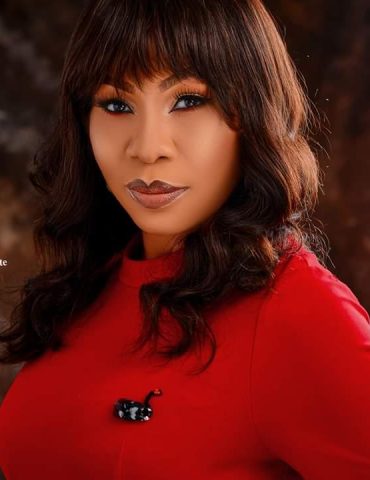



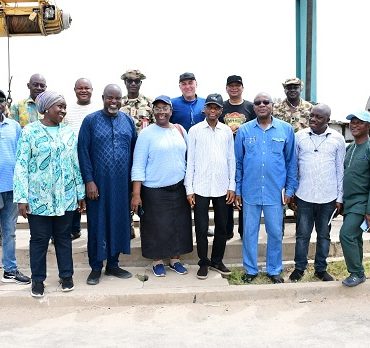
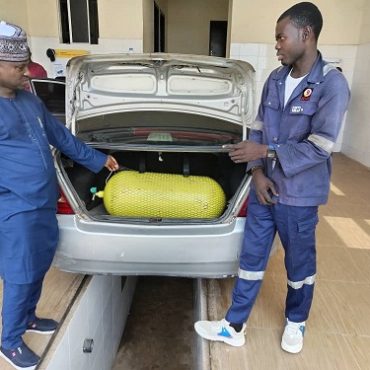
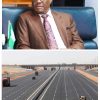
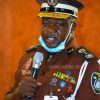
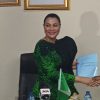

Post comments (0)